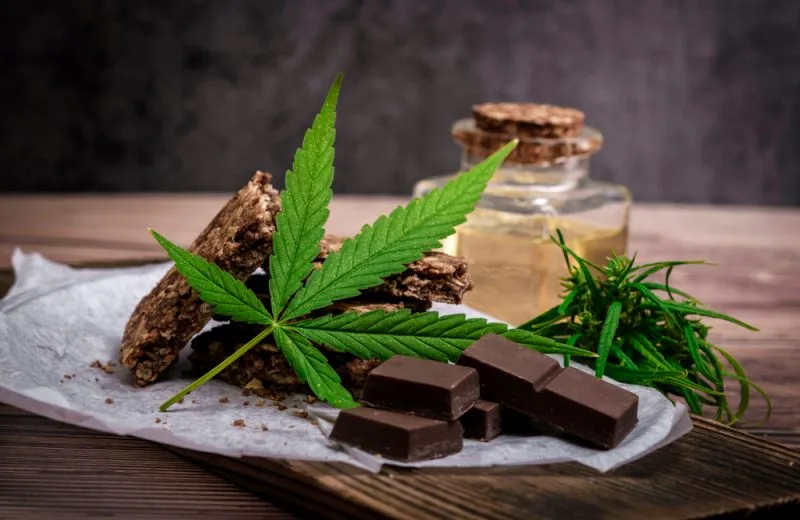There’s no doubt that CBD-infused products have taken the world by storm. The popularity of these treatments in recent years has risen rapidly. It seems that there is a CBD-based remedy for just about every ailment imaginable now. From epilepsy to nausea and anxiety, and everything in between. CBD is available in many forms. This includes oils, gummies, and even creams that can provide topical pain relief for a wide range of aches and pains.
Not all CBD products are created equal
It’s important to understand that not all of these CBD-based products are created equal. There are a number of factors that may play a role in the efficacy of your CBD products. This includes the amount of CBD they contain and how it is derived. In addition, other active and inactive ingredients in your CBD-based product can alter how these remedies work, as well as how they affect your body. One such ingredient is THC, or tetrahydrocannabinol. For a number of reasons, it is important to ensure you know whether your CBD products are THC-free. Here’s why.
What is THC?
THC is a compound derived naturally from the cannabis plant, just like CBD. However, unlike CBD, THC has known psychoactive properties. This means that it can affect the way our brains function, which can impact our behavior, mood and motor skills. This isn’t necessarily a bad or dangerous thing. Indeed caffeine is also a psychoactive drug and is widely and legally used throughout most of the world.
THC, however, has different psychoactive properties than caffeine. It is the component in marijuana that gives the “high” sensation. It can affect our decision-making, memory, and so much more – even our perception of time. For these reasons, it has been deemed that the impairment to the mind caused by THC makes it unsafe to (for example) drive, and cannabis-derived products containing THC are illegal in many parts of the world.
What is THC-Free CBD?
Although products containing THC are often illegal, CBD-based products are legal in the United States as long as they are THC-free or contain very low levels of THC. For CBD-based products to be legal in the US, they must contain 0.3% or less of THC. This is considered a “trace amount” of THC. It isn’t enough to have psychotropic effects or cause you to return a positive blood test.
By creating a product that is high in CBD, but contains only trace amounts of THC, many producers turn to hemp. Hemp is a plant that belongs to the cannabis family, just like the marijuana plant. While the marijuana plant contains high levels of both CBD and THC, hemp contains high levels of CBD, but very low amounts of THC. To ensure their products contain as little THC as possible, many producers of CBD-based treatments are trying to cultivate hemp plants that are specifically bred to have extremely low THC levels.
Production Process Impacts a THC-free outcome
There are also different methods of CBD production that can affect the final product, its purity, and the effects it has on the body. “CBD isolate” is CBD in its purest form. It comes from an extraction process where all the other naturally occurring compounds in the hemp plant are removed. On the other hand, CBD distillate is a distilled version of CBD that still contains other cannabinoids and other elements of the hemp plant. The distillate goes through numerous purification steps that help to remove almost all the THC. This leaves only trace amounts and making products made from distillate safe and legal.
Do CBD-based products work without THC?
It’s true that a majority of what we know about the effects of cannabinoids comes from research related to THC. In recent years, much has been learned about CBD and its potentially powerful benefits. Because CBD is relatively new in the medical field, much of the evidence surrounding how it works is anecdotal and hasn’t been backed up by clinical trials yet. That said, many people swear by their CBD treatments, and there is evidence to suggest that CBD can help alleviate depression and anxiety, could be useful for sufferers of post-traumatic stress disorder, can improve sleep, alleviate pain, and more.
The Bottom Line
In short, it appears that CBD and THC act independently. It seems that they interact with the same receptors on our cells – cannabinoid receptors – but this does not suggest that THC has to be present in order for CBD to be effective. Products can be effective when THC-free. This is great news for people who may be looking for a safe, legal and natural way to relieve pain, stress, or to simply improve their sleep.
References
Medical News Today: Is Caffeine Bad For You? https://www.medicalnewstoday.com/articles/271707: Medically reviewed by Katherine Marengo LDN, R.D., specialty in nutrition, on November 7, 2019 — Written by Adam Felman
Insider.com: How is Hemp Different from Weed? https://www.insider.com/how-is-hemp-different-from-weed-marijuana-2019-1 Julia Naftulin Feb 7, 2019, 6:30 PM


